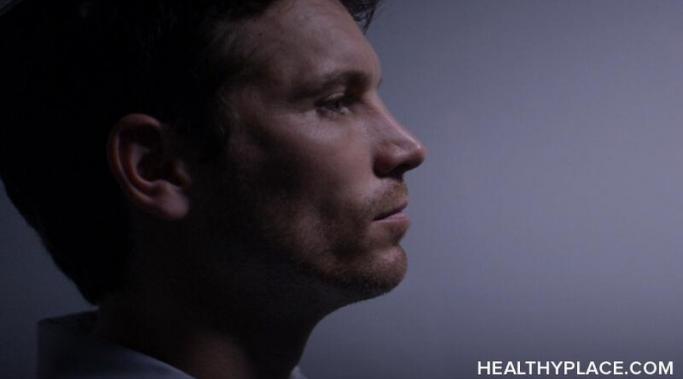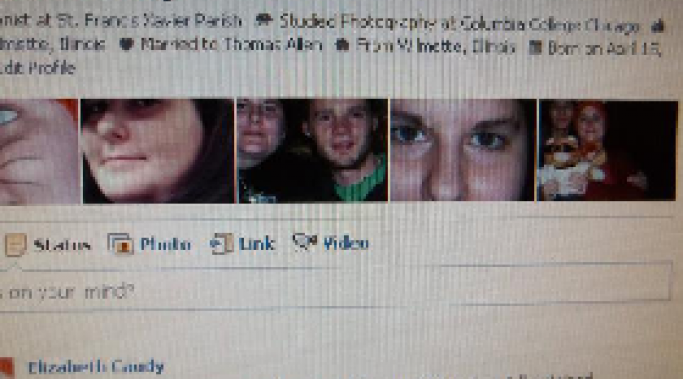Schizophrenia and schizoaffective disorder are often accompanied by binge spending. It feels therapeutic but, remember, you’re not thinking clearly due to the illness. And if you have schizoaffective disorder in particular, you might be in the middle of a manic high. Here’s what can happen with schizophrenia and schizoaffective disorder when you pull out the credit card for a round of binge spending.
Schizoaffective Disorder
Many people with schizophrenia or schizoaffective disorder don’t know what to do when it comes to having children (Impact of a Parent's Mental Illness on Children). If you want to have kids, that’s wonderful. You know that having and raising them is challenging for anyone and more so if you have schizophrenia or schizoaffective disorder. I have schizoaffective disorder and no kids; here’s why.
Having schizophrenia or schizoaffective disorder in college is really hard. Getting a master’s degree is really hard, too. Dealing double duty can be a real challenge. I got my master’s degree in photography while coming to terms with my diagnosis of schizoaffective disorder. Here’s what it’s like to be in college while battling schizophrenia or schizoaffective disorder.
People with schizophrenia or schizoaffective disorder become very familiar with the term “functioning.” Many mental health professionals I’ve worked with say this means you can get out of bed in the morning, shower, and pay the rent. As a person with schizoaffective disorder (a combination of bipolar disorder and schizophrenia), I think life should be about more than just bathing every day and paying the rent. Functioning with schizoaffective disorder means something else to me.
I have schizoaffective disorder, meaning, simply, that I have a combination of bipolar disorder and schizophrenia. And I experience auditory hallucinations, even on Easter. I accept hearing voices, but I don't like that it happens. It’s hard to say what brings them on. Sometimes it’s a mix of anxiety and overstimulation; sometimes it’s one or the other. But, whatever the cause, as anyone who hears voices will tell you, hearing voices is not fun. It's difficult to accept hearing voices, but sometimes that's the only way to cope.
Political activism with schizophrenia or schizoaffective disorder can be hard, even when I have the same commitment other people feel. It’s hard to go to rallies or protests where large crowds of loud people can be over-stimulating. But these aren’t the only ways to be politically active if you have schizophrenia or schizoaffective disorder. Especially in the age of the Internet, people with schizophrenia or schizoaffective disorder take political action without going to loud, disorienting events.
With schizophrenia or schizoaffective disorder, self-care can be hard. Things that most people take for granted, like showering, can become a looming, stressful chore. But why? Why is self-care so difficult for people with schizophrenia or schizoaffective disorder?
People with schizophrenia or schizoaffective disorder have a much higher chance of having suicidal feelings and dying of suicide than the rest of the population. Knowing this, you would think the minute I had a suicidal thought, I’d go to the emergency room (What To Do If You Are Suicidal). But I’ve been to the psychiatric ward, and as useful as it can be in a time of real danger, I don’t want to end up there again. So what are some tactics people with schizophrenia or schizoaffective disorder can use when suicidal feelings, that don’t seem to require a trip to the emergency room, hit us?
People do a lot of things to help with their schizophrenia or schizoaffective disorder, including journaling. I believe taking medication and seeing a therapist are the most important strategies. But there are other things to do for self-care besides that. I know a lot of people swear by meditation. I swear by exercise for schizoaffective disorder, as I’ve written about previously. But something new has come into my life that helps with my schizoaffective disorder that I’d like to share with you. Well, it isn’t exactly new. It’s something I’ve been doing on and off since I was five. Recently I’ve decided to get serious about it. I’m talking about journaling with schizophrenia or schizoaffective disorder.
As someone with schizoaffective disorder, it’s hard to say whether the Internet is a blessing or a curse. After all, without the Internet, I wouldn’t be writing this and you wouldn’t be reading it. But what can be the pitfalls of the Internet for someone with schizophrenia or schizoaffective disorder?









